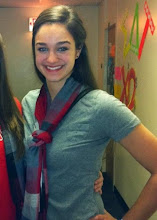I think the most important message that this article
relays is the concept that we all learn different ways for different reasons.
This seems almost blatantly obvious-- duh, we don't learn how to ride a bike
the same way that we learn vocabulary words and their definitions. I really
enjoyed the parallels made in Figure 1.1, where intentional, active,
constructive, authentic, and cooperative learning all create one brilliant star
of an educational relationship. In order to fully prepare students for lifelong
learning, an educator must incorporate all of these facets into their lessons.
Authentic lessons, like mentioned in the article, include learning physics by
applying the knowledge of gravity in the classroom to how a baseball travels in
the air when thrown. Applying what students have learned in the classroom into
their lives outside of the classroom is imperative to creating meaningful
connections in a student's life.
In order to create this meaningful connection, the article mentions a very critical
step in the educational process: a teacher must know how to communicate
effectively (with or without technology) to his or her students in order for
them to learn. It is of no benefit to a student if the teacher knows everything
but cannot relay it in a manner that the student understands. A good educator
understands his or her audience and references many different avenues (whether
that be current technology, cooperative learning, or other methods) in order to
reach out to his or her students. Learning in the classroom is not always about
intentional learning either; a balance of all five characteristics allows for
students to continue to learn life lessons not explicitly stated in a textbook.

No comments:
Post a Comment